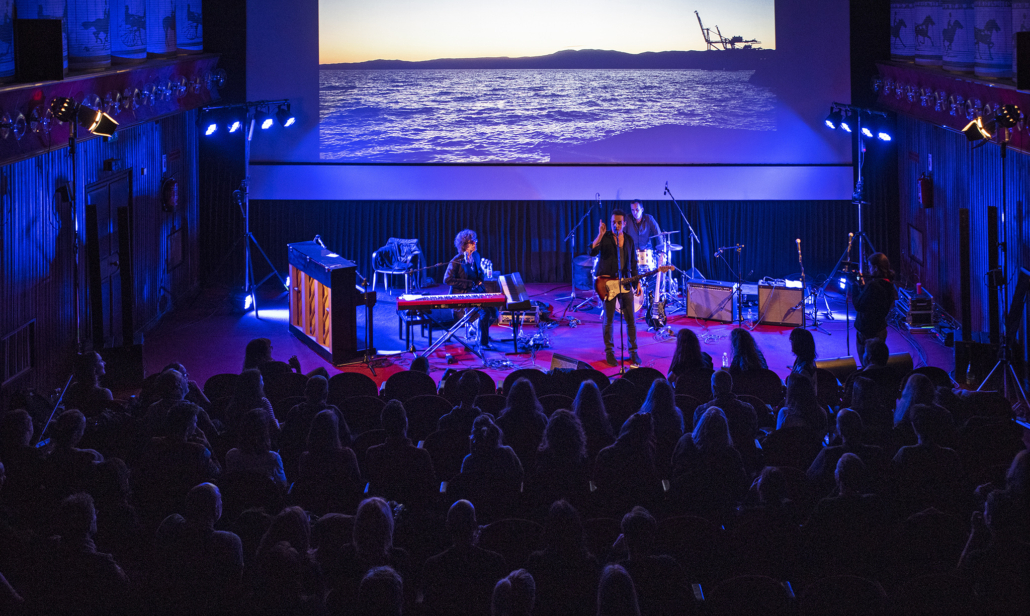EUFCN Spotlight on: Kvarner Film Commission
The Kvarner Film Commission is a regional film office established in 2016 within the framework of the public institution Art-kino, with the support and incentives provided by the Croatian Audiovisual Centre, the Primorje-Gorski Kotar County and the City of Rijeka.
The filmicity and potential of Kvarner has been recognized by many filmmakers ever since 1909, when the first feature film was made in the territory. Since the foundation of Art-kino, the development of film industry in Kvarner keeps evolving.
Slobodanka Mišković, Head of Kvarner Film Commission, presents the attractiveness of a region that provides a unique combination of sea, islands, mountain tops and Mediterranean towns.

© Vladimir Mudrovcic
Which main productions were shot recently in Kvarner, which ones are set to be shooting in the future or were postponed due to the global emergency?
“In February, right before the lockdown, the great Abel Ferrara visited Rijeka with his family and band to present his film Tommaso and held a cinema concert. During his stay in Rijeka, he documented the concert in Art-kino and close family moments on different locations around Rijeka, and included the footage in his new documentary film Sportin’ Life, which premiered last month at the Venice Film Festival.
The productions that shot in our region during the summer are mostly national, but there are also few international ones that resumed filming after they were postponed due to the global emergency.
The most recent filming in our territory happened just a week ago, and it was for the sequel of the Serbian film South Wind (Južni vetar), the most watched film of the decade in Serbia.”

© Nina Durdevic, for Film Mutations: Festival of Invisible Cinema
What’s the biggest production you have ever supported in your territory?
“The longest and most important production our commission has supported is definitely the TV series The Paper (Novine) by Dalibor Matanić. It is one of the most successful Southeast European television works, thanks to which the unique visuals of Kvarner can be seen in 190 countries around the world through the Netflix service. More than 250 different locations (the average of 90 locations per each episode) in our region served as a set for all three seasons. The main protagonist of the series is Rijeka, and through the episodes you can witness all the diversity our region has to offer – proximity of the sea and mountains, urban city views and attractive natural locations. Therefore, we are free to say that The Paper is a visual monument to Kvarner.
Other big foreign productions we have supported recently are The Hitman’s Wife Bodyguard (Lionsgate), McMafia (BBC) and Strike Back (Left Bank Pictures).”

© Vladimir Mudrovcic
What do you think is something unique the Kvarner Film Commission can offer?
“Imagine shooting a skiing scene, a siege of a castle, sunbathing on a beach, docking of a ship in a port dating back to the 19th century, having a coffee in a place that has the French Riviera ambience or driving on mountain roads with the sea in the back… Well, all that is possible in our Kvarner, an invaluable combination of sea, islands and mountains in an extremely small area.
Moreover, our film commission is part of Art-kino, a public institution active in the domain of film art and culture, which gives us a great opportunity to expand our support and collaboration with film productions by providing premises for castings or organising Rijeka film premieres in our cinema, which pleases both the film crew and the locals who have a chance to watch their city on the big screen. Furthermore, we are proud to say that we have an exceptionally fruitful cooperation with the local public authorities, thanks to which any emerging problem can be solved quickly. ”

© Vladimir Mudrovcic
Do you have any particular anecdote related to your experience as film commissioner?
“It is pretty hard to single out one particular anecdote as we have so many positive and heartwarming experiences. Our most cherished memories are from the filming of the TV series The Paper. All three seasons were filmed in our region and numerous locations served as a set for the first time. Experiencing local places through new, film set eyes, meeting and working with great people, collaboration with locals who are always welcoming and helpful to the film crew is a great combo by itself. And the icing on the cake were the premieres of all three seasons on big screen followed by a get-together with the film crew.”

© Vladimir Mudrovcic
What activities has Kvarner Film Commission been carrying on during these challenging months and how are you handling the gradual restart of production in your country?
“The gradual restart of production in Croatia has been handled quite well thanks to the prompt response to the current situation by the Croatian professional audiovisual associations as well as the Croatian government and the Public Health Institute. Therefore, after almost two months of lockdown, Guidelines for film production in Croatia during the COVID-19 pandemic have been issued in May and are regularly updated in accordance with the current safety measures. Even though the lockdown experience was shocking, the Kvarner Film Commission stayed positive and harnessed the situation to plan in detail its future actions such as webinars and showcases for students in order to bring them closer to film production, but also to plan updates on our social media channels. Luckily, the production in Croatia got back on track in June and we continue to provide administrative, logistical and professional assistance to both domestic and foreign audiovisual productions to this day. It is worth mentioning that the European Committee of the Regions, a body that has been representing regional and local authorities in the EU since 1994, cited Rijeka as an example of good practice in the fight against the coronavirus.”
The European Film Commissions Network is a non-profit association that supports and promotes the European film industry and culture. It currently represents 97 European film commissions and film institutions from 31 different countries.


